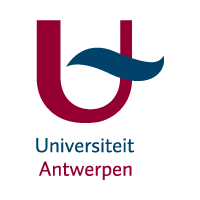
The University of Antwerp is a dynamic, forward-thinking, European university. We offer an innovative academic education to more than 20 000 students, conduct pioneering scientific research and play an important service-providing role in society. We are one of the largest, most international and most innovative employers in the region. With more than 6000 employees from 100 different countries, we are helping to build tomorrow’s world every day. Through top scientific research, we push back boundaries and set a course for the future – a future that you can help to shape.
PhD Position – Unraveling the role of aminoacyl-tRNA synthetases in the etiology of Charcot- Marie-Tooth neuropathies
Position
We are an international team of researchers belonging to the Jordanova lab at the VIB- UAntwerp Center for Molecular Neurology (https://vib.be/labs/jordanova-lab), looking for an enthusiastic colleague who wants to perform his/her PhD study on unraveling the molecular mechanisms leading to Charcot-Marie-Tooth neuropathy, the most common genetic disorder of the peripheral nervous system.
Our pioneering studies demonstrated that aminoacyl-tRNA synthetases (aaRS) play a critical role in the degeneration of peripheral nerves. We identified that heterozygous mutations in the tyrosyl-tRNA synthetase (YARS) cause a subtype of CMT disease (Jordanova et al., Nat Genetics 2006). Together with 5 other tRNA synthetases, this family of enzymes represents the major protein cluster associated with CMT disease to date. Under normal circumstances, aaRS catalyze the charging of tRNAs with their cognate amino acids in the first step of protein biosynthesis. However, our findings demonstrated that lack of aminoacylation activity is not a prerequisite for disease to occur (Storkebaum et al, PNAS 2009). Rather, the CMT mutations lead to a gain of neurotoxic function and interfere with activities of these enzymes beyond protein translation. In a recent study, we established that YARS acts as a transcriptional regulator in the nucleus and the CMT-causing mutations impair this ex-translational function (Bervoets et al., Nature Communications 2019). Still, the exact mechanism leading to neurodegeneration remains elusive, and it is not clear whether it is shared between all CMT- associated synthetases. In the advertised project, the PhD student will combine genetic, transcriptomics, biochemical and cell biological approaches in Drosophila and cellular models, and iPSC-derived patient’s motoneurons, in order to gain insights into the intricate molecular mechanisms leading to aaRS-associated neurodegeneration
The successful candidate will join an ongoing project and will be embedded in a multi- disciplinary team of wet lab scientists and clinical experts. As part of the VIB-UAntwerp Center for Molecular Neurology (https://uantwerpen.vib.be/) and VIB (www.vib.be), the PhD student will benefit from established collaborations and access to centralized facilities with expertise in genomics, functional genomics and cell biology, proteomics, microscopy, structural biology, technology development, and bioinformatics. VIB provides a highly interactive environment and ample training opportunities for its researchers. In addition, the VIB-UAntwerp Center for Molecular Neurology is located in the city of Antwerp, the capital of Flanders, offering a culturally and historically rich and ethnically diverse environment.
Profile
Predoctoral candidates are expected to have:
- Master’s degree in molecular biology, cell biology, biochemistry or biomedicine awarded from a University in the European Economic Area, Switzerland or UK, and obtained no earlier than 2018;
- Experience in working with Drosophila or with (iPSC) cell cultures would be an advantage;
- Ability to extract and summarize data from the literature;
- Ability to formulate research objectives and to design an experimental plan;
- Ability to self-organize work and willingness to collaborate with others;
- Passion for science, flexibility and team spirit;
- Excellent verbal and written English communication skills.
Want to apply?
- You can apply for this vacancy through the University of Antwerp’s online job application platform up to and including December 31st, 2020 (by midnight Brussels time). Click on the ‘Apply’ button, complete the online application form and be sure to include the following attachments: detailed CV containing list of publications (if any), a motivation letter describing research interests and contact details of 2 referees.
- The selection committee will review all of the applications as soon as possible after the application deadline. As soon as a decision has been made, we will inform you about the next steps in the selection procedure.
- If you have any questions about the online application form, please check the frequently asked questions or send an email to jobs@uantwerpen.be. If you have any questions about the job itself, please contact albena.jordanova@uantwerpen.vib.be
The University of Antwerp received the European Commission’s HR Excellence in Research Award for its HR policy. We are a sustainable, family-friendly organisation which invests in its employees’ growth. We encourage diversity and attach great importance to an inclusive working environment and equal opportunities, regardless of gender identity, disability, race, ethnicity, religion or belief, sexual orientation or age. We encourage people from diverse backgrounds and with diverse characteristics to apply.



